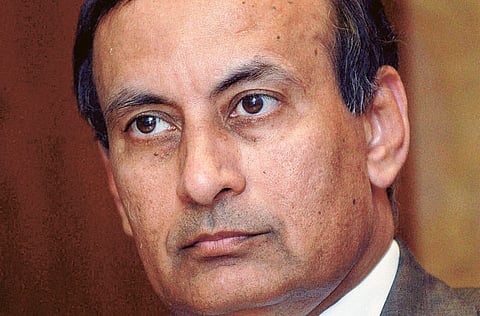Pluralism on trial in Pakistan
Haqqani vision of a tolerant nation integrated into the world community aligns with Pakistani and US interests

As US-Pakistani relations plunge to new depths, Americans need to look beyond media reports on tactical issues such as aid and counterterrorism. The direction Pakistan takes will be of great strategic significance to the world.
The manner in which my husband, former Pakistani ambassador Hussain Haqqani, is being treated in our homeland reflects the shrinking political space there for anyone who advocates positive relations with the West or stands up for religious-cultural tolerance and pluralism. Haqqani resigned in November after successfully making Pakistan's case in Washington for more than three years.
He was implicated in a controversy sparked by an unsigned memo sent to Admiral Mike Mullen, then the chairman of the Joint Chiefs of Staff, after the US raid inside Pakistan to kill Osama Bin Laden in May. The memo, written by a Pakistani American businessman, ostensibly sought US support for Pakistan's civilian government against its military.
The idea of an elected government seeking foreign help in reining in its military leaders is anathema to Pakistanis, who are rightly protective of our national sovereignty. Mullen has said he did not consider the memo credible. Former national security adviser Jim Jones, who passed the memo to Mullen, has said that he saw it only as the creation of its author.
After he resigned, Haqqani could have stayed in the US. But he returned to Pakistan to seek an impartial inquiry into the controversy. Some in the Pakistani media, illustrating how our society has been poisoned by extremist views, launched a propaganda campaign accusing him of treason. Last month Pakistan's Supreme Court barred him, on national security grounds, from leaving the country while a judicial probe is conducted.
Haqqani appeared in court on Monday and was asked for evidence of his innocence — even though no charges have been officially levelled against him. Human rights lawyer Asma Jahangir and other legal experts consider the court's order of an inquiry a denial of due process. A country's highest court should be the last avenue of appeal, not the first stop. In a democracy, the rights of a citizen should not be trumped by an intelligence service's assertions of national security interests. But my husband's case is not simply that of an individual who has been wrongly accused and denied due process. It is part of a broader issue: the systematic elimination or marginalisation of every intellectual and leader in Pakistan who has stood up to the institutionalisation of a militarised Islamist state.
Former prime minister Benazir Bhutto endured persecution and exile before she was assassinated in December 2007. She was vilified by extremists for standing up to their beliefs and for her valiant efforts to move Pakistan towards modernity, pluralism and democracy. Her widower, President Asif Ali Zardari, has been hounded by those same forces since he was elected president in 2008.
Insidious media campaigns, judicial actions and open threats have repeatedly been used to thwart the results of elections. Last January, Salman Taseer, the governor of Pakistan's largest province and a progressive politician who promoted the rights of religious minorities as equal citizens, was killed by one of his guards after media characterisations convinced the man that Taseer was not a true Muslim.
Against this backdrop, for security reasons, Prime Minister Yousuf Raza Gilani is hosting Haqqani at his Islamabad residence while my husband deals with the malicious allegations and sinister campaign against him. Husain was ambassador to Washington during a period when US-Pakistani ties became acrimonious. He worked diligently not only to bolster Pakistan's image but also to shift the relationship from a transactional basis to a strategic alliance.
He sought to expand relations into a bond in which the people on each side respected the other. His vision for Pakistan matches the one Bhutto held: a modern, moderate, Muslim, democratic and pluralist country with close ties to the US and that is also protective of its sovereignty. Haqqani's tireless efforts to build a tolerant nation integrated into the world community aligns with both Pakistani and US interests.
He knew that his views were not popular in Pakistan but hoped that over time the majority would adopt his vision. He could have followed the path of least resistance and taken a populist stance, blaming Washington for Pakistan's ills. This is fashionable in Pakistan. That would have helped him gain popularity and maybe even support from the military establishment, which never forgave him for the 2005 academic book in which he criticised the military's expanded role.
Pakistan's judicial process over the disputed memo might be an internal matter, as the US State Department has said. But it is imperative that Americans stand up for someone who sought to improve US-Pakistani relations and spoke out for shared values. The manipulated investigation over an unsigned memo that produced no tangible results should not be allowed to undermine Pakistan's democracy or to punish a good man for his forward-thinking vision.
— Washington Post
Farahnaz Ispahani is a member of Pakistan's Parliament and the wife of former Pakistani ambassador to the US Hussain Haqqani.



